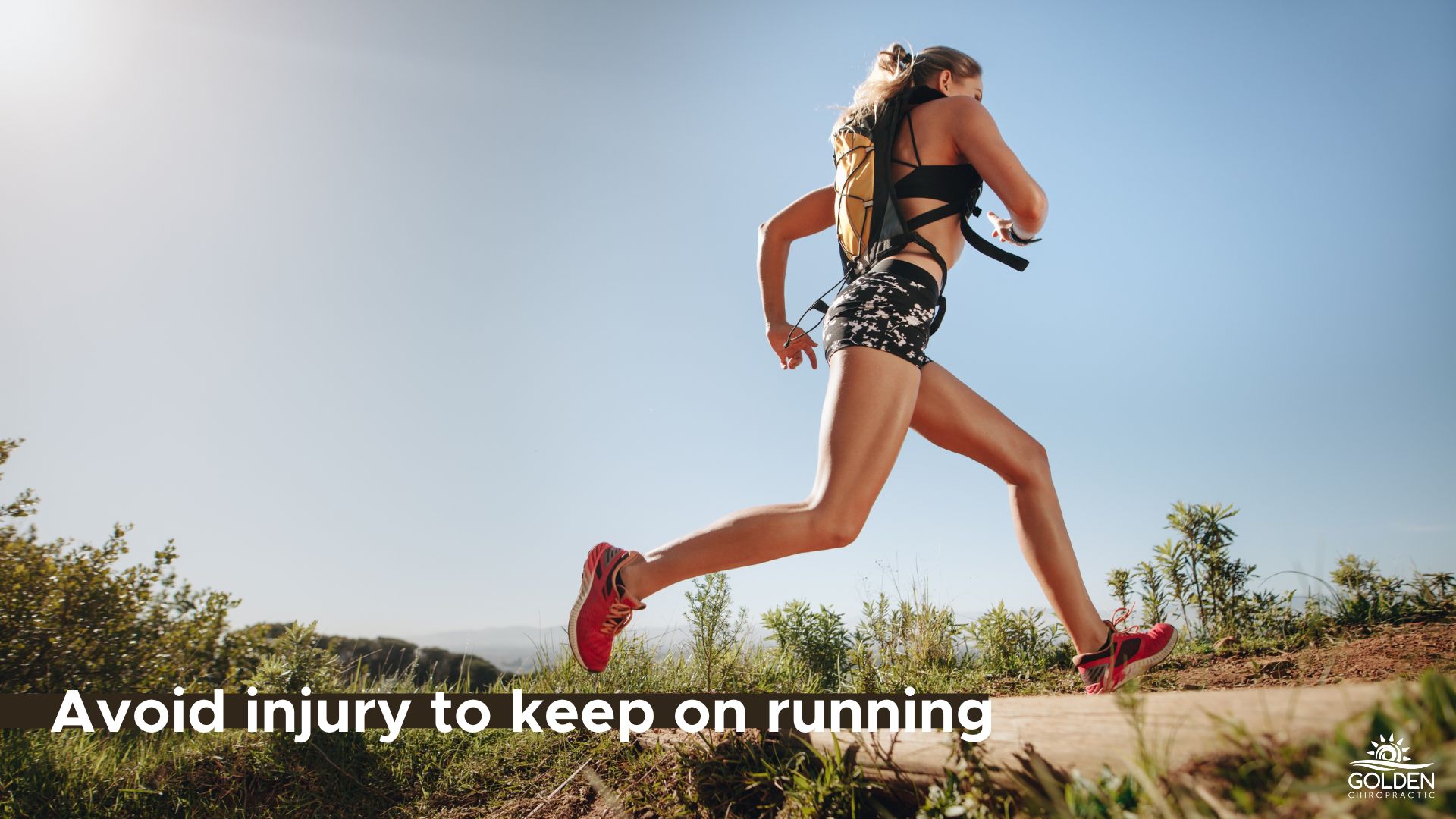
08/08/2024 by Dr. Joe Bell
More Running. Less Injury
Like many forms of exercise, running helps not only with physical fitness, but also with mental clarity and emotional well-being.
From a mental health perspective, running helps reduce stress. By releasing endorphins, running can also ease symptoms of anxiety and depression.
Physically, running helps improve your cardiovascular health and increase your muscle tone. It's also helpful for weight management.
Dr. Joe has experienced running's benefits firsthand:
"As a former swimmer, I initially used running to get in shape for hiking and backpacking. Over time, running became more than just exercise; it became a vital part of my life. Running has helped me lose over 40 pounds and significantly improved my mood and mental resilience."
Sadly, running often comes with injuries.
Being sidelined due to an injury can be really frustrating. Many of our athletic patients feel disappointment, anger, and a bit helpless when they are injured.
As someone who has dealt with shin splints and an ankle sprain, Dr. Joe understands how hard it can be to maintain a positive attitude when your body doesn’t cooperate. We encourage our patients to acknowledge these feelings, and then turn their focus to recovery and prevention.
We frequently see patients with running-related injuries.
We not only treat these injuries, but also educate our patients on prevention strategies. Proper warm-up routines, proper post-running stretching, strength training, and appropriate footwear all reduce the risk of injury.
Dr. Joe has a personal running and injury management strategy.
"My injuries have taught me valuable lessons about the importance of listening to my body and incorporating rest days into my routine.
I have learned to manage my running schedule by balancing intensity with recovery. Running more than four days a week often leads to full-body soreness, so I prioritize rest and cross-training to avoid overtraining."
Dr. Goldi helps Dr. Joe keep running, too.
Knowing that regular adjustments help prevent athletic injuries, Dr. Joe receives treatment regularly from Dr. Goldi.
"Treating Dr. Joe for his running-related low back pain has been rewarding. Adjustments during his training for the San Francisco Half Marathon were instrumental in keeping him on track."
Here's how you can prevent common running injuries.
Below are the most common running-related injuries we see in our office, and a few tips for avoiding these injuries.
Runner's Knee (Patellofemoral Pain Syndrome)
Symptoms: Pain around the kneecap, especially during activities like walking, running, or climbing stairs.
Anatomy Involved: This condition often arises from overuse or misalignment, affecting the area in front of the knee.
Prevention:
- Incorporate foam rolling before and after runs
- Do strengthening exercises like clamshells and standing fire hydrants with resistance bands to improve the surrounding musculature: including the quads, glutes, and hamstrings
Shin Splints (Medial Tibial Stress Syndrome)
Symptoms: Pain along the inner edge of the shinbone, often due to overuse or improper footwear
Anatomy Involved: This condition is linked to stress on the shinbone and connective tissues, leading to inflammation.
Prevention:
- Be mindful of running surfaces. Avoid hard surfaces like concrete, which is 2.5 times harder than asphalt, to help relieve pressure on the shins and meniscus
- Emphasize internal rotation of the tibia
- Wear proper footwear
Achilles Tendinitis
Symptoms: Inflammation and pain in the Achilles tendon, usually resulting from excessive stress or overuse.
Anatomy Involved: The Achilles tendon connects the calf muscles to the heel bone and can become strained with improper running mechanics.
Prevention:
- Ensure a proper heel strike when running to avoid overworking the Achilles/Gastrocnemius
- Avoid running on soft surfaces like sand unless it's flat and hard-packed
- Replace shoes every 450-500 miles, alternate between pairs, and choose shoes with a solid heel and adequate toe box space
IT Band Syndrome
Symptoms: Pain on the outer side of the knee caused by the iliotibial band rubbing against the knee joint.
Anatomy Involved: The IT band is a thick band of tissue running along the outside of the thigh, and overuse can lead to inflammation and pain.
Prevention:
- Gradually increase mileage and intensity to avoid sudden overuse
- Incorporate strength training to support the IT band and surrounding muscles
Plantar Fasciitis
Symptoms: Heel pain due to inflammation of the plantar fascia, often from excessive running or poor arch support.
Anatomy Involved: The plantar fascia is a thick band of tissue running along the bottom of the foot, connecting the heel to the toes.
Prevention:
- Rehab intrinsic foot muscles with exercises like Janda short foot exercises and rolling out the plantar surface with a frozen water bottle
- Ensure proper arch support and engage in low-impact cross-training activities to reduce repetitive stress
Having pain you suspect is from a running injury?
If you’re injured, experiencing pain, or not seeing improvement with self-care, it may be time to seek help.
Our team of chiropractors in Aptos have a lot of experience treating running injuries. With a tailored treatment plan, we’ll get you back to running sooner than you think.
Book an appointment online to begin your recovery. Pain-free running begins with the right support and knowledgeable healthcare professionals.
Want to learn more about running injury prevention?
Download our Trail Running Injury Prevention Guide
Need a good warm up to help you prevent running injuries?
Do this 5-Minute Warm-Up for Injury Prevention
